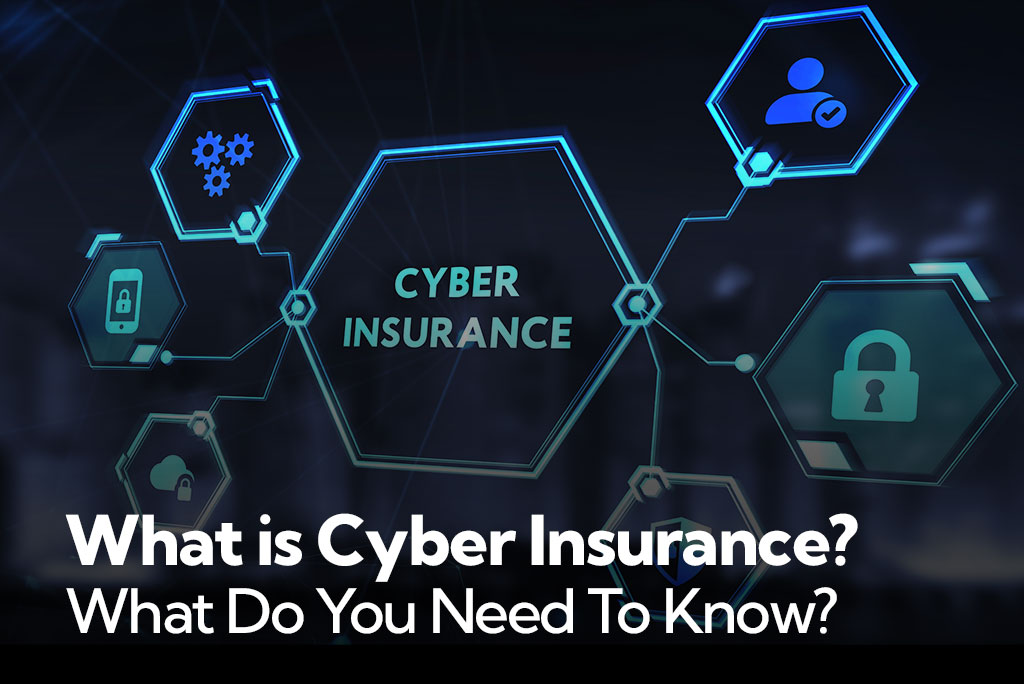Insurance
What You Need To Know About Cyber Insurance

Compared to life and health insurance, cyber insurance is a relatively new type of insurance. Other unique forms could be Engineering Insurance and Device Insurance.
With the worrying rise in cyber attacks and threats, cyber insurance is becoming increasingly popular as a means of covering the loss and harm caused by cyber invasions. This is also why you should stay current on computer-related topics.
The intensity of cyber attacks creates a dilemma for our data security. According to the IBM Ponemon Institute 2019 data breach study (via Forbes), it takes an average of more than nine months to detect and mitigate a data breach.
What is Cyber Insurance or Cyber Liability Insurance?
A cyber insurance coverage covers financial damages caused by data breaches and other cyber catastrophes.
In our data-driven culture, cyber insurance is critical. Almost everything we do is data-centric. What about customer records and details? Website analytics? Market research or reality? Data, they claim, is the new oil.
When these data are compromised, cyber insurance provides a safety net to help recover the losses. Crafty hackers with creative schemes are at the top of their game. Regardless of the defensive tactics we implement, it is preferable to be safe than sorry if there is an unavoidable breach.
Do You Really Need Cyber Insurance?
Do you find yourself wondering whether or not you need insurance? It is fairly straightforward. Do you rely on technology to conduct business? Do you manage and maintain company data or client information? Let’s simplify its importance: Do you use computers to transmit, receive, or save electronic data?
If you responded “Yes” to the questions above, you will require some level of coverage. Have you ever thought about what happens if you lose your data? What if a hacker takes or damages the data? It may be pricey to replace or restore.
Your computer may also include sensitive data owned by a third party, such as customers, employees, or vendors. If a hacker breaches data, the owners may sue your company for damages.
Employees or vendors. If a hacker breaches data, the owners may sue your company for damages. You can safeguard your Company from all costs associated with data breaches by acquiring a cyber liability policy.
Companies of all sizes should obtain cyber insurance. It is incorrect to assume that small businesses do not require coverage. In truth, they are more vulnerable to dangers since they do not invest as much in cybersecurity as larger organizations.
Cybercriminals do not always target companies based on size or name. This is how it works. They may utilize bots to scour the internet for organizations with security flaws. According to research, hackers are seeking for small and large firms with valuable consumer data to steal and sell on the black market.
Also, many people believe that security systems are a substitute for cyber insurance. New infections and infiltrations can compromise security measures. As a result, cyber insurance protects against data theft or loss, network invasions, information-security breaches, and lost income due to system downtime. Also, learn more about comprehensive insurance.
Who is Cyber Insurance for?
Cyber insurance or cyber liability insurance coverage (CLIC) is mostly for businesses. This sort of insurance allows companies to defray some of the costs associated with cyber security in the event of a breach. Every companies can benefit from this, especially if they do not have the resources to cover the expense of a security issue.
Why is Cyber Insurance necessary?
IBM experts calculated that a data breach would cost $4.24 million. However, not every company will be able to cover this expense. This is why having cyber insurance is essential. It will cover the financial damage of a data breach. Furthermore, it enables you to concentrate more on your recovery approach following a security assault.
What does cyber insurance cover?
The sort of cyber insurance coverage you choose will determine what it covers. However, most cyber insurance plans cover some basic expenses. They include:
1. Cost associated with Cyber security breaches
Several cases lead to the compromise of an organization’s cyber security. In situations like this, the affected organization will have to pay the ransom for being vulnerable. Additionally, some cyber security attacks may bring down a company’s server. Under such circumstances, the company will have to pay for the resulting damage incurred while their server is down. Cyber risk insurance takes care of this cost.
2. Cost related to legal fines and settlements
Every security breach often requires a company to pay legal fees. These fees are associated with investigation, lawsuits as well as settlement. Cyber insurance coverage covers the cost of all legal fees.
3. Cost associated with response and recovery
Every security breach requires a response and recovery. Also, some companies may decide to invite a third party. This third party will figure out what type of data was breached, how to recover and prevent a future occurrence. Your cyber insurance will cover the cost of employing a third-party investigator.
4. Cost related to communication
A breach will require a company to set up a communication strategy for their employees, customers, or the media. If the attack is severe, they may have to set up support and call centers. Cyber insurance will cover these costs.
All these sums up the cost that most cyber insurance policies covers. Although, some may cover more costs depending on the policy type you choose.
What cyber insurance does not cover
Here are some costs most cyber insurance policies don’t cover
1. Cost related to intellectual property theft
2. Cost related to potential future lost profit due to the long-term effects of an incident or Advanced Persistent Threat (APT)
3. Cost incurred because of the organization upgrading its system and security after the incident.
Most policies do not cover this cost so it is better you prepare for them beforehand.
What are the questions to ask when buying cyber insurance?
Before you buy cyber insurance, ensure that it covers some important costs. Here are four questions to ask before buying cyber insurance:
1. Does the cyber insurance policy cover third-party incidents?
Some cyber insurance does not cover costs related to incidents from third-party breaches. However, you need your cyber insurance to cover this aspect because a third party may be the cause of some incidents.
2. Does cyber insurance take care of social engineering attacks?
Although social engineering is a very common cyber security attack, some policies do not cover it. Since every organization is prone to this attack, you must ensure that your cyber insurance covers it.
3. Will it cover costs associated with reputational damages?
Most high-profile organizations suffer reputational damage when there is a cyber-security breach. This damage may affect their yearly revenue and that can be disastrous for their finances. Therefore, it is important for any cyber insurance you choose to cover this cost.
4. Will it cover Advanced Persistent Threats (APT)?
Basically, APT are attackers that reside within a company’s network. They lurk within to either exfiltrate data or wait for a vulnerable moment to strike. Some cyber insurance does not cover the cost of APT. This is because of the long duration between the cyber security incident and the detection of APT.
What are the factors affecting the cost of cyber insurance?
The cost of your cyber insurance depends on the following:
1. Type of industry
2. Size of Industry
3. Type of coverage
4. Lastly, your company’s footprint
What are the types of Cyber Insurance?
1. First-Party Cyber Insurance Coverage
These apply to expenses your firm directly incurs as a result of the breach. For instance, this could include the cost of informing your client about a hacker attack. Coverages here include Loss or Damage to Electronic Data, Loss of Income and Extra Expenses, Cyber Extortion, and others.
2. Third-Party Cyber Insurance Coverage
These apply to claims against your company by individuals that have been injured as a result of your actions. For instance, a client sues you for negligence after a hacker steals his data from your computer system and leaks it. Coverage here typically applies to damages or settlements that result from covered claims as well as the cost of your defense.
Conclusion
Having cyber-insurance is essential for any firm that lacks the resources to cover cyber security incidents. Every firm will have at least one security breach, so it is critical that they prepare in advance. As a result, ensure that your firm has cyber insurance to protect your assets and reduce the costs connected with security breaches.










